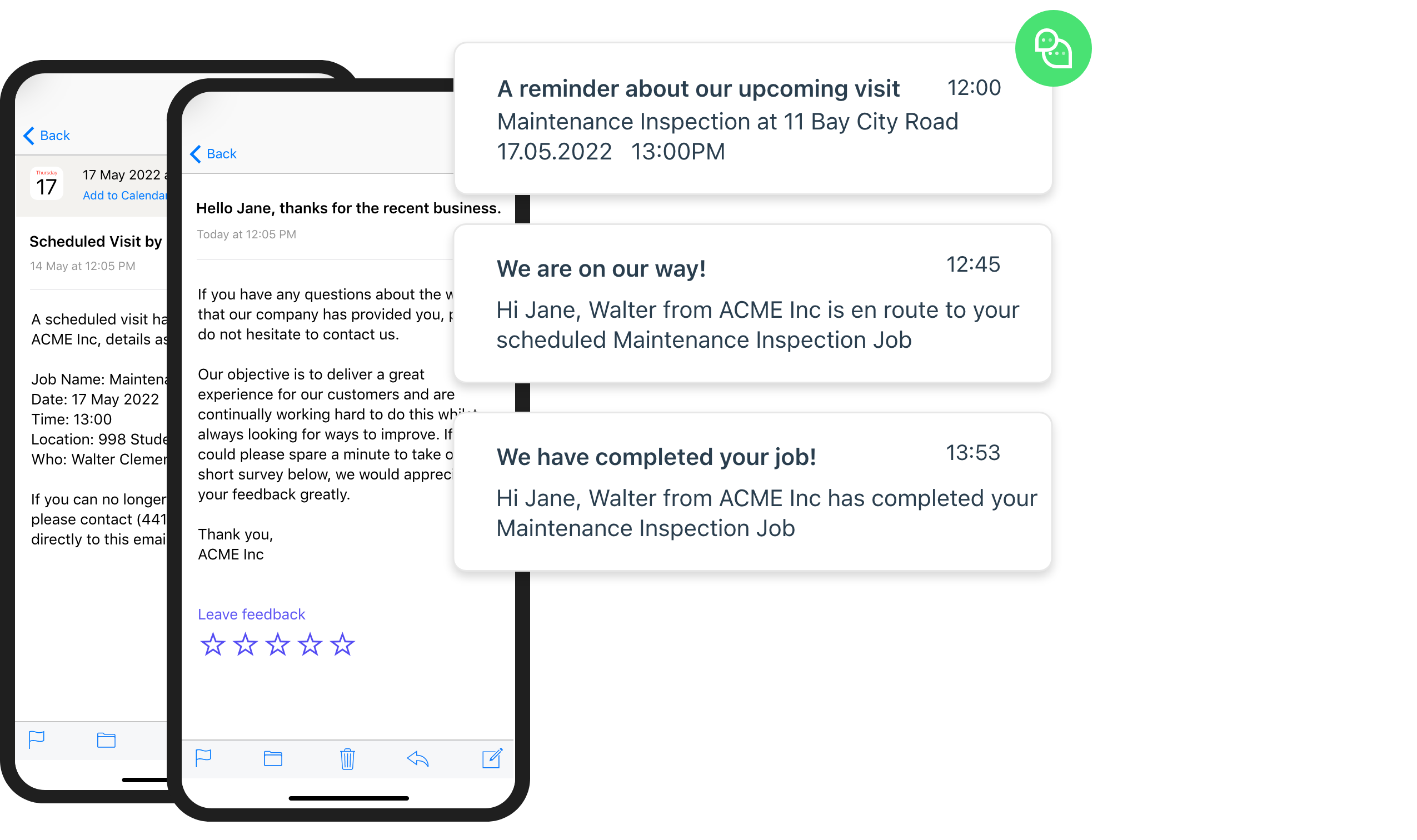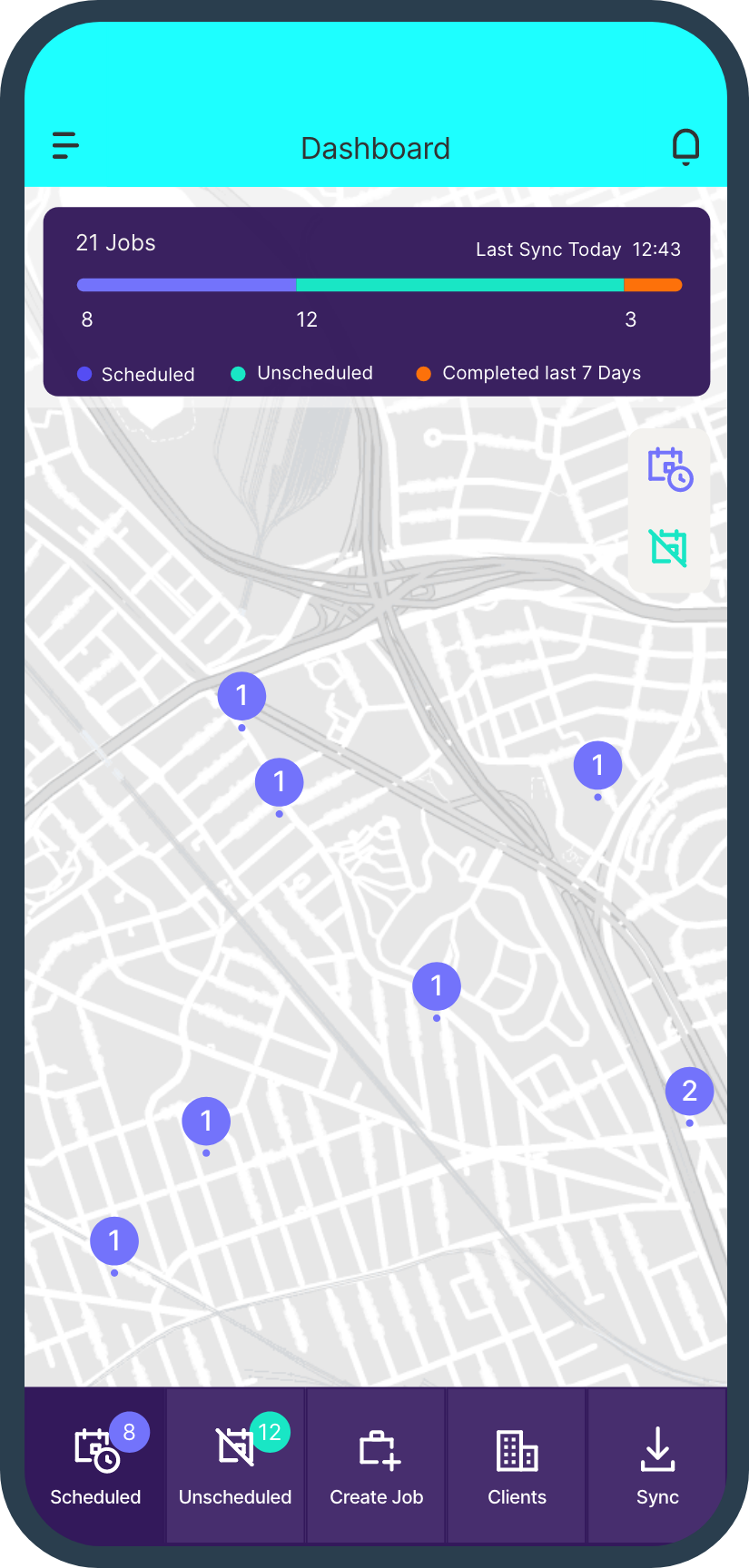In the fast-paced world of field service businesses, time is of the essence. Whether you’re managing a plumbing company, a construction crew, or an HVAC service, efficiency and prompt communication are key to success. That’s where automated notifications come into play. In this article, we’ll delve into the time-saving benefits of automated notifications for field service businesses and how they can streamline operations, improve customer satisfaction, and boost overall productivity.

The Importance of Timely Communication
Effective communication lies at the heart of every successful field service operation. When a job requires immediate attention or there’s a change in the schedule, every minute counts. Manual communication methods, like phone calls and emails, can be time-consuming and prone to delays, leaving room for miscommunication and missed opportunities.
Automated notifications offer a solution to these challenges by delivering real-time updates and messages to the right people at the right time. Whether it’s notifying technicians about new job assignments, alerting customers about appointment confirmations, or reminding staff of upcoming maintenance tasks, automated notifications help bridge the communication gap and ensure that everyone stays on the same page.
Enhancing Technician Productivity
One of the primary advantages of automated notifications is their ability to enhance technician productivity. Field service technicians are often on the move, traveling from one job site to another. Without timely updates and instructions, they may waste valuable time trying to figure out their next assignment or dealing with last-minute changes.
Automated notifications provide technicians with instant access to job details, schedules, and customer information. For instance, when a new job is assigned, technicians receive automated notifications on their mobile devices, eliminating the need to check in with the office constantly. This allows them to plan their routes more efficiently, which translates to less time on the road and more time spent on actual work.
Additionally, automated notifications can include job-specific instructions and customer preferences, ensuring that technicians are well-prepared for each assignment. This not only saves time but also improves the quality of service delivered, leading to higher customer satisfaction.
Improving Customer Experience
In the field service industry, providing excellent customer service is paramount. Automated notifications play a crucial role in elevating the customer experience. When customers receive timely notifications about their appointments, they’re more likely to feel valued and respected.
For example, sending automated appointment reminders a day or two before the scheduled service not only helps customers prepare but also reduces the chances of missed appointments, benefiting both parties. In cases where there are delays or unexpected changes, automated notifications can inform customers promptly, demonstrating transparency and professionalism.
Moreover, automated notifications can request feedback and reviews after a job is completed, making it easier for businesses to gather valuable customer insights and improve their services continuously. By consistently delivering a seamless and convenient experience through automated communication, field service businesses can build trust and loyalty among their clientele.
Efficient Scheduling and Dispatch
Efficient scheduling and dispatch are essential for field service businesses, as they directly impact overall productivity and customer satisfaction. Manual scheduling processes can be time-intensive and prone to errors, resulting in delayed arrivals, underutilized resources, and unhappy customers.
Automated notifications come to the rescue by streamlining scheduling and dispatch operations. When a new service request is received, the system can automatically assign the most suitable technician based on factors like location, skills, and availability. Once the assignment is made, automated notifications can instantly inform the technician of the details and provide turn-by-turn directions to the job site.
Furthermore, automated notifications can help optimize dispatching by alerting dispatchers to potential scheduling conflicts or resource shortages. This allows for quick adjustments and ensures that jobs are assigned efficiently, reducing travel time and operational costs.
Reducing Administrative Burden
Field service businesses often grapple with administrative tasks that consume valuable time and resources. Managing schedules, coordinating with technicians, and keeping customers informed can be overwhelming when done manually.
Automated notifications significantly reduce the administrative burden by automating repetitive tasks. For instance, appointment confirmations, reminders, and follow-up messages can be automated, freeing up staff to focus on more critical responsibilities.
Additionally, automated notifications can generate reports and provide data insights, saving businesses the time and effort required for manual data entry and analysis. This data can be used to make informed decisions, optimize workflows, and identify areas for improvement.
Conclusion
In the dynamic world of field service businesses, efficiency and timely communication are essential for success. Automated notifications offer a solution to the challenges of manual communication methods, enhancing technician productivity, improving the customer experience, streamlining scheduling and dispatch, and reducing administrative burdens. By implementing automated notification systems, field service businesses can save time, improve operational efficiency, and ultimately deliver better service to their customers, leading to increased satisfaction and business growth.


